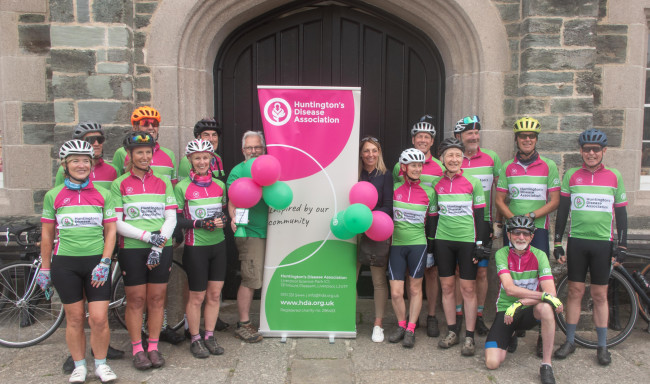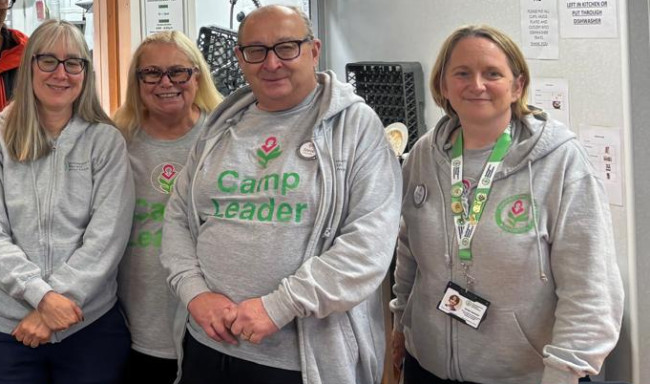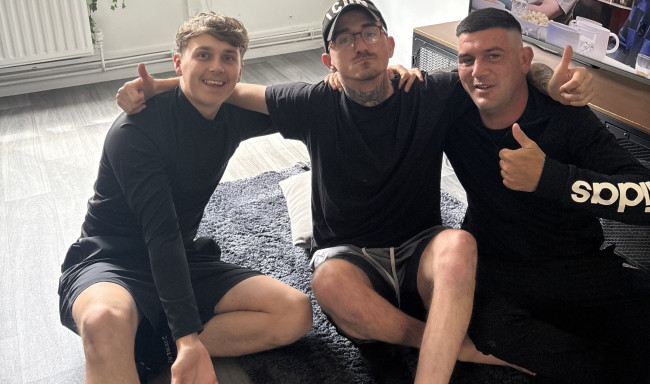When I was a teenager, I used to have this idea, that if I pre-empted bad things happening then they wouldn’t happen. Because it’s the things you don’t expect; that you don’t see coming, that get you.
I found comfort in this idea. The irony is that all these years later, Huntington's disease would land on my family, side-swiping the lot of us as the ultimate thing I didn’t see coming.
Growing up, my mum was everything to me and my sister. So, when her temperament and physicality started to change in her late forties, we knew something was wrong. As the years went by and her symptoms developed, mum proceeded to have multiple neurological tests, CT and MRI scans and bloodwork. But never was she tested for Huntington's as there was no known family history.
The first diagnosis
The neurologists scratched their heads and diagnosed mum with having a set of unexplained neurological symptoms due to a faulty gene somewhere. I remember thinking, at least it wasn’t ALS or Huntington's disease. So, when in the midst of lockdown, mum video called me and my sister to say she had tested positive for Huntington's disease, needless to say, it was a shock.
It just kept hitting in waves. Firstly, oh my god ...mum. Then; wait does that mean me and my sister might have it? And then the worst wave crashed. Oh my god, the boys. Please no.
These waves of realisation started washing over me with such crashing force that I felt immediately upended from my life. Each realisation, only brought more questions. Because that’s the thing about Huntington's disease. So little is concrete, so little is certain. Every half-answer only brings more ifs, buts and caveats.
Like anyone who suddenly finds themselves out to sea, I tried to find something solid to hang on to; something definite that would help me find my feet. I immediately did that thing that all people do and started googling stuff. I had to do in small doses though. At one point I came across a video of someone with advanced symptoms and I instinctively shoved my phone under a pillow!
It was in those early few days of finding out about mum and then trying to grapple with what that would mean for our family, that I phoned the Huntington’s Disease Association and spoke to a Specialist Adviser. She was so good at her job. She held space for me to word-vomit all of the fears and questions I had swirling around and answered each one honestly and in a way that made me feel they were valid. She quietly and patiently let me beg for answers which we both knew she couldn’t give me.
"She brought me my first sense of comfort without giving me false hope, just by listening, hearing me and not trying to make everything ok. But just by being there as a person who understood. That telephone call was a respite. She was a buoy in the ocean; a place to hang on to for a moment when I really needed to."
Immediately I wanted to be tested. I would have taken the test the same minute I found out there was a 50% chance of me also carrying the Huntington's gene. When I discovered that it wasn’t possible to be tested without first going through the genetic counselling process, and that process could take months, I felt so angry. I was already 33.
I had just made some major life changes. Moved in with my partner and blended our families together, decided to start my own business. Maybe another child one day. There was time to start over and shape our future however we wanted. When I found out about Huntington's all of that seemed out of reach. Of course, it wasn’t. But in that aftermath, it felt like my world was a mirror opposite. Where everything I thought I knew - wasn’t. And my identity felt lost to me. Who was I with this knowledge, how could I continue to move forward knowing what was ahead? A giant hourglass was above my head, and one day; could be tomorrow, or next year, or five years. But that hourglass would turn.
Genetic counselling
When I started genetic counselling, I was surprised to learn how few people actually go through with finding out. I just couldn’t understand it. It was so black and white to me.
"I went in there armed with all the knowledge and facts and determined to get a blood test as quickly as possible. But I understand why the process takes time. Your brain needs time to catch up with the lifelong enormity of finding out either way."
I went into the counselling sessions confident and sure of my valid reasons for wanting to find out. I assured them that I had looked at it from all angles and I went very well educated about Huntington’s disease and wasn’t scared to talk about any of the harder realities.
My genetic counsellor was fantastic. Both in the counselling sessions and with follow-up care afterwards. But I think even she was surprised at my reaction when she gave me the news that I had tested positive for the gene. I had to receive the result via video call. As soon as I heard her say the result I burst into tears. With such a burst of raw emotion that I'd never displayed during counselling. I think she was somewhat taken aback!
You can go into this with your head firmly screwed on and having faced it all, but you have no way of really knowing how much difference hearing the concrete words will make to you.
Grieving
The word that I would use to describe a diagnosis like Huntington’s is grief. Not just for you, but for the whole family. Not just grief in the way we think of it most commonly; when someone dies. But grief for a life lived a million different ways now lost. As a mum, my biggest grief is what I might miss in the future. And my son losing me while I'm still here. I often will do the mental math of ‘what age will he be when I'm this way or that’. I can't articulate here what I feel about the possibility of him having the gene also. For self-preservation, and to be able to be the best, most fun mum I can be I can't allow myself to even go there.
There's no way to know the effect that the pandemic and lockdown had on how I was able to process. Certainly, having my son and my two stepchildren to home school and fulfilling their need for me to be mum, teacher, friend, therapist and around-the-clock snack provider left no room for falling apart. So, I shoved it all in a cupboard and did my best to shut that door. And for the best part of 2021, it mostly stayed shut. But in the quiet of the night that wave would engulf once again.
"I don’t pretend to know what would have been the easier/healthier way to process. The necessary human ability to compartmentalise is an invaluable tool in times of trauma or crisis. Certainly, falling apart would not have benefitted anyone. And at the time, I welcomed the routines of the home classroom as a distraction, which left very little time to focus on much else."
Our culture teaches us that grief is something you work through and move past. Success and strength when dealing with grief and trauma is defined by finally working through the stages and then being over it. But grief, like life isn't linear. It ebbs and flows. The real strength lies in being gentle with yourself and allowing yourself permission to sit with your feelings in a safe space. I'm lucky enough to have a couple of people who are that safe space for me.
Navigating the feelings
Most days now I go about my busy life the same as everyone else and I'm lucky that it's filled with a lot of love and laughter. But some days I feel stuck in a paradoxical limbo, knowing that living the life I have now to the fullest is the only thing that will help keep that fear at bay and regain some sense of control. But the fear and ensuing anxiety sometimes creeps in, keeping me still. And on those days I feel stuck.
"I would really recommend finding a counsellor who has experience with neurological diseases. This can be tricky depending on where you live, but being able to talk to someone who already knows and understands the complexities of Huntington’s for the individual but also for a family makes so much difference. The last thing you need when you need help is to have to try and explain Huntington’s disease from scratch."
What helps me the most is to feel grateful. I'm not into comparing pain; or who has it worse. But if God, science, the universe whatever you believe in, laid all the cards of your life out on a table and said – fine, you can give this Huntington's one back, but what will you swap it for? Certainly not for an illness or accident that is going to give me even less time with my family. I also wouldn’t swap my card with another person who didn’t have the family love I have in my life. Or the kind of best friend I have who I couldn’t be without. It's not about comparing pain; it just helps me to really see how many truly wonderful other cards I have been blessed enough to be dealt. Each and every day one look at my sons wide-eyed, open little face centers me, and I realise I wouldn’t trade my life for someone else's, even if it meant I wouldn’t have to have Huntington's.
I'm going to be honest with you, I don’t feel this way all of the time. A lot of days I cry, feel scared, am angry and grieving and some days I can do no more than just survive. But all of those are healthy, valid emotions here. And it is my hope that on days when I thrive I do so with a heart full of gratefulness and unburdened joy. And I now know that on days where I simply survive, then that’s okay too.
Thrive, survive and repeat.

Thank you so much to Poppy for sharing her story with us.
We have lots of information about genetic testing.
If you are affected by Huntington’s disease and are in need of support or advice, please contact us on 0151 331 5444 or email info@hda.org.uk. Our dedicated phone line is open 9 am – 5 pm, Monday – Friday with Specialist Advisers waiting at the other end to offer you support.
If you have a story to share, please get in touch with us via email.




